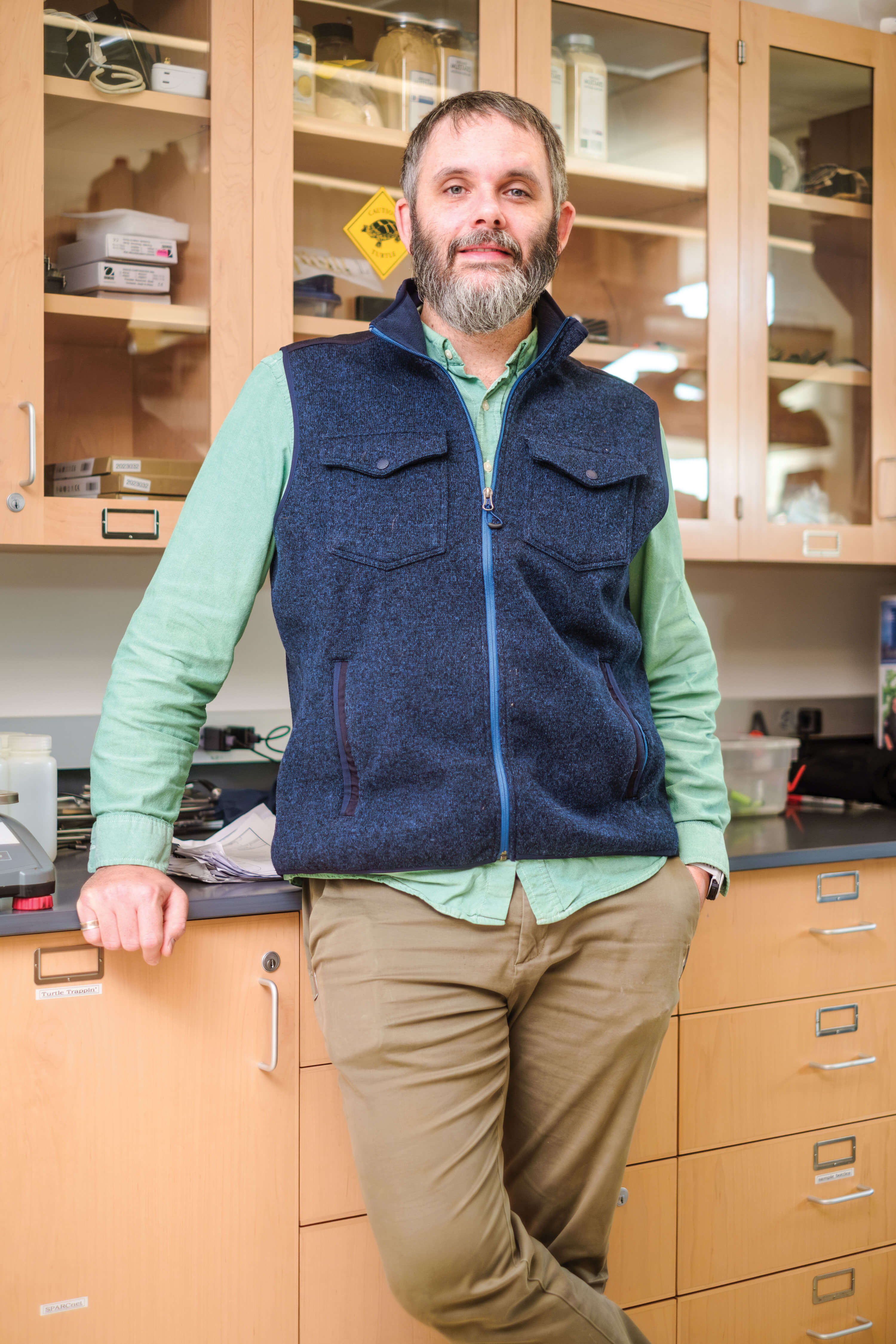
Breaking Barriers
Sean Sterrett’s $3 million NSF grant aims to improve diversity and mentorship in the field of biology.
Assistant Professor of Wildlife Ecology Sean Sterrett, Ph.D., is part of a team that was awarded a four-year, $3 million grant from the National Science Foundation. The main goal of the Research and Mentoring for Postbaccalaureates in Biological Sciences grant is to diversify the field of biology while offering training and mentorship to a new generation of scientists who will be studying species in a world continually impacted by climate change.
In collaboration with scientists from Bridgewater State, Pennsylvania State, Michigan State, and Susquehanna universities, Sterrett will be working to integrate this new research and mentoring network into the existing Salamander Population and Adaptive Research Collaboration Network, known as SPARCnet.
He talked with us about this effort and his role specifically.
One of the goals of this grant is to help diversify the workforce in the field of biology. Why is that so important?
The workforce diversity issue is a problem that most of science has—it’s mostly white men and women—and part of the problem is that, oftentimes, underrepresented groups don’t have the same opportunities. You might have someone who is a fantastic student in the classroom but they haven’t used their summers for research or career development because maybe they have other financial or family obligations.
Or they might be a first-generation student like I was who doesn’t really know how to approach a professor for help. As a result, they’re missing that professional networking and development piece that many other students get throughout their undergraduate careers, which in turn can help them get a job or get into graduate school.
This grant will provide a diverse group of 30 postbaccalaureate mentees with a one-year, paid, mentored-research position at SPARCnet sites in the eastern United States, where, through a combination of research, training, and mentoring, they will be better prepared to successfully enter the competitive STEM workforce and postgraduate education programs.
What is SPARCnet, and why is it the perfect vehicle to grow this network?
SPARCnet is a regional initiative designed to advance the understanding of environmental change on salamander populations across the eastern United States. It’s made up of a diverse group of scientists; educators; and university, federal, state, and nonprofit partners who up until now have been informally using it as a place to store and share data related to the study of salamanders.
This grant will help to formalize the group and allow SPARCnet to be a vehicle for mentees to connect with hundreds of fellow students as well as scientists from more than two dozen universities who utilize the network for their research.
Another big initiative of this grant that I’m focusing on is training the mentors. Mentoring as a skill is something that most researchers aren’t taught, but it is extremely important to be able to build a professional relationship with students and mentees focused on their aspirations, and to be able to communicate with them to help them work toward and achieve their short-and long-term goals. We’ll be holding workshops and developing a community of practice focused on helping our mentors to be better mentors.
What type of projects will the mentees be working on, and how does it relate to your research?
The red-backed salamander is the focal species we’re studying. They’re the most abundant and biomass-rich vertebrate in forests in the eastern United States, and they’re considered an indicator species when it comes to understanding how forest communities are adapting to climate change. If they’re not doing well, the ecosystem isn’t doing well.
Mentee projects will be twofold. They will contribute to the standard SPARCnet sampling projects that happen every fall and spring to help build out that database so we can understand how populations change. They will also be part of a tailored research project, which will focus on something that they’re interested in and that’s mostly tied to the expertise of the mentor.
My lab studies spatial ecology—which is the study of where animals go and how they utilize particular spaces in their range—as well as how to track those animals. So, the mentees I work with might be joining me on a first-of-its-kind study using small PIT tags (like the microchips found in pets) to track the movements of salamanders underground, which is where they spend the majority of their life. Ultimately, these projects will all be focused on studying different elements that will help us understand whether and how salamanders and others animals are adapting to climate change.